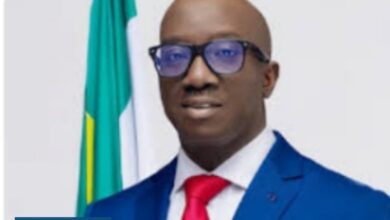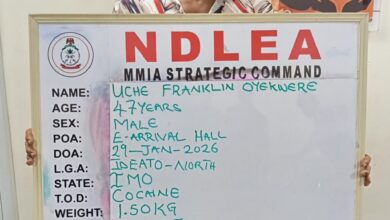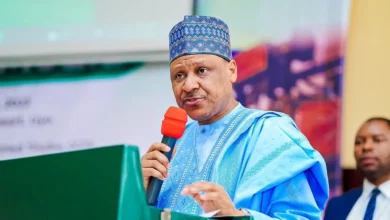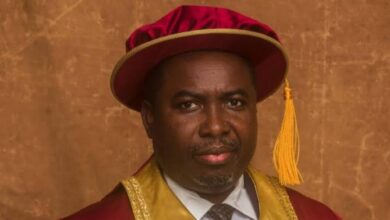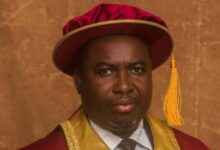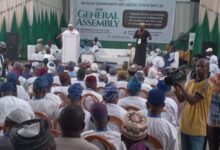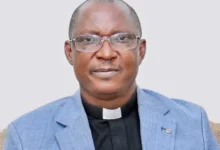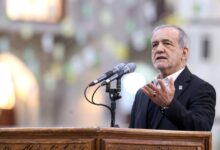EHINGBETI: How to achieve inclusivity of indigenous people in Blue Economy commercial ownership, by Gen Olanrewaju, Prof Jinadu, Alara, others
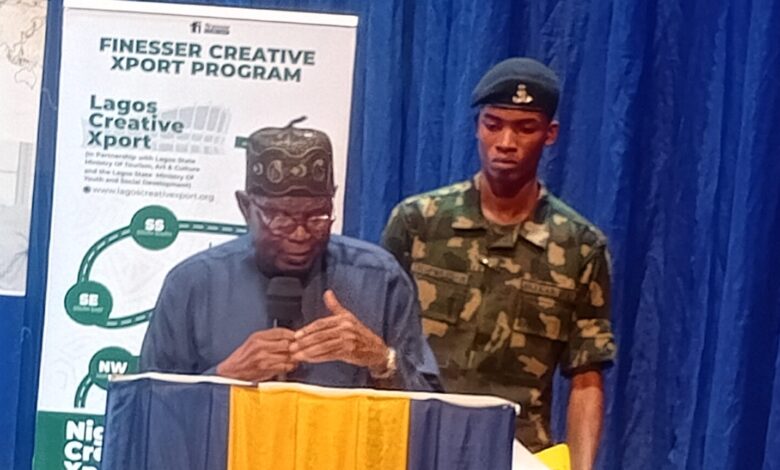
*As Olaitan Williams, Anishere, Braimoh, other stakeholders make case for neglected coastal communities over sector boom
By BASHIR ADEFAKA
Reading from his prepared speech, General Tajudeen Olanrewaju said, “To say a little about Eyingbeti era, it was a time of bliss, development and economic prosperity in Lagos, creating the popular saying that ‘’Ti Oju o bati Eyingbeti, Oju Ole ti Eko, which connotes an assurance of sustainable wealth and economic potentials of the city of Lagos. A period of outstanding prosperity, putting the city of Lagos at the fore front in socio-economic and political relevance amongst the British colony especially in West Africa.”
In furtherance to its effort towards ensuring inclusivity of the indigenous people in commercial ownership of Blue Economic sector in the country, especially, in Lagos, the Olaitan Williams-led Ocean Ambassadors Foundation, on Tuesday October 28, 2025, brought back to life again the Ehingbeti as a vital component to discuss and proffer solutions to challenges in the sector.
In doing this, stakeholders in the Lagos and maritime industry not only exposed how the failure to invest in coastal communities threatens to derail Nigeria’s Blue Economy promises, risking deepening poverty in the sector, but also charted the way forward.
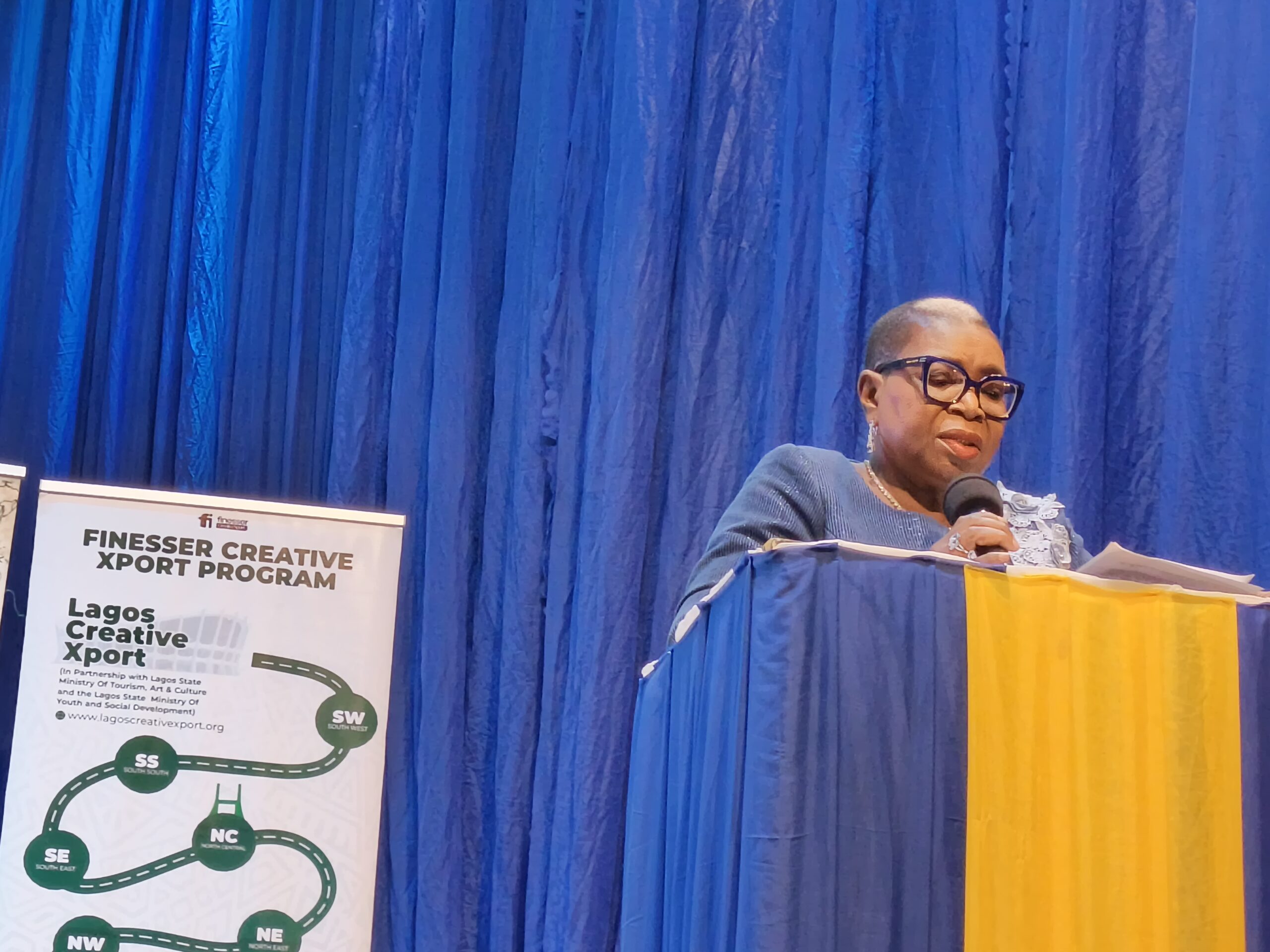
The stakeholders, particularly in the words of Retired Major General Tajudeen Olanrewaju, said while foreign models like Singapore, Philippines littoral communities surge ahead with inclusive maritime growth, Nigeria coastal communities and the indigenous people of such areas are wallowing in poverty despite the huge volume of international trade.
Speaking at the 3rd Ehingbeti Blue Economy Hub in Lagos on Tuesday October 28, 2025, Major General Tajudeen Olanrewaju (Rtd), the Nigeria’s former Minister of Communications whose deregulation of the telecommunication sector freed the country from the agelong grip of NITEL, sounded a stark warning as he noted that Nigeria’s indigenous coastal communities remain sidelined and impoverished despite the country’s burgeoning maritime wealth.
Slamming the local population that should be a top priority in Blue Economy development plan, the Retired General condemned policies that exclude locals from economic gains as he urged urgent reforms that prioritise inclusivity and poverty alleviation.
Highlighting the rich history of the Ehingbeti era, when coastal commerce thrived and powered Lagos’ prosperity, General Tajudeen Olanrewaju stressed that today’s potential remains unrealised because indigenous voices are systematically ignored.
The General further voiced concern over the disenfranchisement of indigenous communities in coastal areas, stressing the need for government intervention to cater for the people as part of efforts to better the future of people living in those communities.
Olanrewaju, in his address as chairman of the event, noted that key objective of the forum was to advance an inclusive, people-centered approach to Lagos’ coastal development within the Blue Economy framework.
The Chairman urged industry experts, business leaders, policymakers, and other stakeholders to probe the concept, components, and values of Ehingbeti to inform policy formulation and implementation aligned with local realities.
Commending the organisers for linking ocean and maritime management with Lagos’ historical development, the General defined the Blue Economy as the sustainable use of oceanic resources to drive economic growth, improve livelihoods, and create jobs while protecting ocean health.
According to him, the points raised recounted the Ehingbeti era, describing it as a period of prosperity that positioned Lagos at the forefront of socio-economic and political relevance in West Africa under British colonial rule.
He further highlighted how water-based trades in food, arts and crafts, textiles, liquors, gold, and other resources thrived along the waterways, with commerce on sea serving as a backbone of the city’s economy.
The elder statesman urged a policy shift toward a truly global Blue Economy that harnesses local potentials.In closing, he suggested that Nigeria’s maritime commerce could achieve economic sovereignty through policy changes and by learning from global exemplars such as Singapore, India, and Washington, D.C.
He emphasized that true inclusivity hinges on sound policy, motivation, and targeted training for SMEs within maritime administration.
The importance of Ehingbeti to Lagos Blue Economy – Gen Olanrewaju
Reading from his prepared speech, General Tajudeen Olanrewaju said, “To say a little about Eyingbeti era, it was a time of bliss, development and economic prosperity in Lagos, creating the popular saying that ‘’Ti Oju o bati Eyingbeti, Oju Ole ti Eko, which connotes an assurance of sustainable wealth and economic potentials of the city of Lagos. A period of outstanding prosperity, putting the city of Lagos at the fore front in socio-economic and political relevance amongst the British colony especially in West Africa. Employments were massively generated encouraging huge migration from other parts of the country, this eventually led to increase in population of Lagos State and its present mega city status.
“Trades in food, arts and crafts, textiles, liquors, gold and precious metals thrives so much using the water ways and costal networks as channels. Like what is today conceptualised and developed as the contemporary Blue Economy, Lagos then, thrived on ‘’Commerce on Sea’’.
“Eyingbeti is the stretch of land and water that goes from the Apongbon area in the east up to the Marina to Iru creek and Onikan, opening up the Island to the world with Porto Norvo a few nautical miles to the west, and reaching out eastwardly to Lekki corridor. Trade on water during this period was substantial, the channel and network covers the Atlantic shore lines from the port city Malabo, Equatorial Guinea to the Gambia Port in Banjul. The well connected Lagos Lagoon puts the city of Lagos at a very strategic position to channel Ships to its Lagoon’s shorelines.
“The task here today at this 3rd Ehingbeti Blue Economy hub is to engage the contemporary blue economy policy on the important issue inclusivity for a people centered programme for the development of our coastal communities.
“I believe this is great opportunity for our industry experts, businessmen and women in the industry, policy makers and government bureaucrat and all other stakeholders to dig deep to into the idea, components and values of Eyingbeti with aim of extracting more lessons that will be instructive for successful policy formulation and implementation of the Blue Economy in Lagos in line with our local realities.
“I will like to reemphasize inclusion of indigenous communities in all that will do. The indigenous communities have several and huge values to add to the success of our Maritime activities and projects, ranging from security, manpower supplies, supply of local intelligence and information etc. Their ownership and involvement will guarantee protection for our investments while they also benefit from the development of the local economy.”
“However,” he said, “despite our wealth, the coastal population where our sea ports and the ocean are located have not been fully integrated together with the wealth created from the maritime services. This country is obviously and undeniably rich but yet the local population who are inhabitants in the coastal areas are still affected by poverty due to policy indifference and lack of integration of local skills into the Blue economic system. Poverty is a product of this observation.
“In closing, let me say that Nigerian maritime commerce can be saved and can attain economic sovereignty if there is a policy change such as harnessing all the potentials of a truly global Blue Economy. The question that has always been raised about the Nigerian economy is based on external factors influence on extractive exploitation of our national resources – Where does the wealth go and how does it impact on our maritime services? The answer lies between our national behaviour and foreign impact on our economy and how powerful interests have shaped our Nigerian economy from the outside. It is often the story of a hidden wealth.
“If we consider Singapore, India and Washington DC in United States of America on how they manage their Blue Economy, we can learn a lot of lessons and also gain a lot of benefits on martine economy for our coastal population inclusivity. It is clear that inclusivity really works through good policy , motivation, skill acquisition, training in Small and Medium Enterprises (SMEs) within the maritime administration,” he said.
Why we choose our theme for the year – Olaitan Williams
On her part, convener of the 3rd Ehingbeti Blue Economy Hub and President of Ocean Ambassadors Foundation, Mrs Violet Olaitan Williams, advocated for “sustainable development that marks a significant milestone in our collective pursuit of harnessing the vast potential of our ocean resources in a sustainable and inclusive manner.”
The vibrant lady of strong will said, “I would like to express my deepest appreciation to our esteemed Chairman of the occasion, Special Guest of Honor, Guest of Honor, Father of the day, Keynote Speaker, Royal Father of the day, and all distinguished guests for honoring us with your presence. Your contributions to this gathering are invaluable, and we are honoured to have you share your expertise and insights with us.
“As we gather here today, we do so with a deep sense of purpose and commitment to the development of our coastal communities.
“The theme of this year’s hub, “The Renaissance of Ehingbeti in Community Engagement and Inclusivity.” underscores the importance of engaging our coastal communities in the policy creation and implementation process over the past two editions, we have drawn valuable lessons from our history and heritage, and we have made significant strides in promoting the blue economy concept,” Williams stressed .
Continuing, she reiterated that, ”The production of a well-received audio-visual documentary and a book on the historical significance of Ehingbeti within the contemporary blue economy are testaments to our commitment to this cause.”
The convener echoed the call for sustainable development that actively involves coastal residents rather than leaving them behind and out, issuing a rallying cry for shared responsibility among government, industry, and civil society to unlock true economic sovereignty by integrating indigenous expertise into maritime policy and projects.
Mrs Williams said, “As we move forward, we are delighted to have our erudite professor of political science share his thoughts on a critical topic that has far-reaching implications for our coastal communities. The keynote paper,
“Unpacking the Potentials of Inland Waterways in the Blue Economy,” promises to be a thought-provoking and insightful exploration of the opportunities and challenges that lie ahead.
“We believe that the discussions and deliberations that will ensue over the course of today will provide valuable insights and recommendations that will inform policy decisions and promote inclusive development.
“At the Ocean Ambassadors Foundation, we firmly believe that the development of our coastal communities is a collective responsibility that requires the active participation of all stakeholders.
“We cannot afford to leave the government alone in this endeavour. All hands must be on deck to develop the wealth of our coastal communities and ensure that the benefits of the blue economy are equitably distributed. I have no doubt that together, we can achieve great things and create a brighter future for ourselves and for generations to come,” she stated.
It pays to invest in Blue Economy – Braimoh
Similarly, Lagos Area Manager of the National Inland Waterways Authority (NIWA), Engr. Sarat Braimoh, called on stakeholders to support the growth and development of the blue economy.
The blunt and passionately speaking government official, who said she was proud as Lagosian by marriage, commended President Bola Ahmed Tinubu’s initiative leading to establishment of the Federal Ministry of Marine and Blue Economy, stressing that it would be the game changer for the nation’s economy.
She said politicians and other Nigerians do not invest in sector like blue economy because it is not a show business sector but assured that it really pays if they can surmount the courage to do so.
The Anishere’s intervention, call for ‘Ehingbeti Bus’
A Senior Advocate of Nigeria (SAN), Mrs Jean Chiazor Anishere, advocated for the creation of what she called “Ehingbeti Bus” that is water transportation service.
Anishere expressed her readiness to participate in such waterways investigation and called on stakeholders to support the initiative which, according to her, would serve as a footprint for the indigenous people living in coastal communities.
Blue economy holds development potentials to diversify national wealth – Alara
The royal father of the day at Tuesday’s Ehingbeti Blue Economy Hub event was His Royal Majesty Oba Olufolarin Olukayode Ogunsanwo, Telade IV, the Alara of Ilara Kingdom, Epe Division, Lagos State.
In his goodwill message he said, “I would like to share a few words with us before we listen to the keynote speaker. It gives me profound pleasure to extend my royal goodwill and warm felicitations to the organisers of this remarkable event, the Ocean Ambassadors Foundation, for their continued commitment to maritime advocacy, youth empowerment and sustainable continuity development through the annual seminar, Renaissance of Ehingbeti in the Lagos Blue Economy.
“This noble initiative exemplifies the visionary leadership and purposeful engagement by focusing on themes that advance inclusivity, environmental balance and socio-economic progress. The Foundation has created a strong platform for policy discourse and stakeholders collaboration in Nigeria’s growing blue economy sector.
“The theme of this year’s edition, “Community Engagement and Inclusivity In Blue Economy”, could not be more timely. The blue economy holds development potentials to diversify our national wealth, create jobs and foster sustainable livelihood, particularly, for our coastal communities.”
Why indigenous people can’t continue to be apolitical – Adele Jinadu
Professor Adele Jinadu, Chairman Board of trustees of Lagos State social cultural organisation, De Renaissance Patriots Foundation, and President Association of Political Scientists in Nigeria, graced the occasion in the capacity of a keynote speaker, who spoke to theme: “The Renaissance of Ehingbeti in Community Engagement and Inclusivity”.
Also a professor of political science and non- resident Senior Fellow Centre for Democracy and Development (CDD), Abuja, Nigeria, Professor Jinadu, who appreciated the invitation from the Ocean Ambassadors Foundation specifically requesting him to address what he called “the thematic focus” of this year’s seminar, which is “Community Engagement and Inclusivity in Blue Economy Programme”, expressed an understanding that this year’s theme was part of the Foundation’s broader engagement, focused on “The Renaissance of Ehingbeti in the Lagos Economy.”
He commended the initiative for which he urged that the Ocean Ambassadors Foundation must be congratulated and actively supported. “This is more so, because there can be no better or more propitious time to place both the specific and the broader thematic focus, on the public policy agenda of the state and federal governments and, indeed, of the political parties, ahead of the 2027 general elections.”
After his introductory remarks, he said, “I want to use the opportunity provided by the invitation to give the Keynote Address at this seminar to frame my address in the extremely hostile political environment in which our country’s electoral politics and public policy make it improbable, if not impossible for the public interest to guide our public political authorities in their policy choices, in line with the provisions of Section 14 of Nigeria’s 1999 Constitution, viz:”
And he quoted: “14.(1) The Federal Republic of Nigeria shall be a State based on the principles of democracy and social justice.
“(2) It is hereby, accordingly, declared that—
(a) sovereignty belongs to the people of Nigeria from whom government through this Constitution derives all its powers and authorities;
“(b) the security and welfare of the people shall be the primary purpose of government; and
(c) the security and welfare of the people in their government shall be ensured in accordance with the provisions of this Constitution,” he quoted sections of the Nigeria’s 1999 Constitution as amended.
“Unfortunately, these provisions have virtually become a dead letter, lofty provisions and aspirations, flaunted and trivialized by some of our political leaders who, more to mock than to deceive us, describe themselves as Servants, while in reality their political behaviour and policy choices desecrate these sacred constitutional provisions,” he said.
Professor Adele Jinadu explained why he began his keynote address on the note requiring him to point out relevant constitutional sections that guarantee the state duties Olaitan Williams-led Foundation was advocating by organising the all-important Ehingbeti Blue Economy Hub, saying, it is “because, if the Ocean Ambassadors Foundation and like-minded public interest-spirited NGOs and community-based and faith-based organizations are to pursue their objectives they must rethinking the strategy for their civic engagement with politics and public issues, rejecting the politics of immorality and corrupt personal enrichment and corrupt use of the public procurement process for building formidable war chest for desecrating the sanctity of the electoral process and stealing the people’s vote.
“In short, if the objectives of the Ocean Ambassadors Foundations and like-minded organizations and foundations are to be met, they must rethink their advocacy and mobilization strategy through lawful and constitutional processes clearly enunciated in Nigeria’s 1999 Constitution. About this I shall say more in my conclusion.”
And in the concluding part he scholastically touched deeply on the points he wanted both the citizens especially those coastal population and authorities in charge of Blue Economy policy making to takeaway and work upon.
“My point is the following: Politics is ubiquitous. As argued several centuries ago by Aristotle, Man is a political animal. For this reason the ordinary citizen must take an active interest in politics, as something that affects his or her life on a daily basis. Where the problem comes is, knowledge about and access to the governmental and political process and the ability to influence it, particularly to influence public policy to serve the public interest.
“Fortunately, the process of raising the political and social consciousness of indigenes of the coastal areas of Lagos has been boldly taken up by the De Renaissance Patriots Foundation. But it is not, and can never be too late to cast off this apolitical posture to public policymaking and implementation.”
He argued that is no longer tenable for the affected coastal communities, especially those with clear indigeneity to Lagos State as the front De Renaissance Patriots Foundation leads, to continue to stay away from taking active steps in grabbing opportunities provided by participatory politics, if truly they mean business about desire to control the system that influences policy making for own good.
According to him, “Why we cannot continue to be apolitical stares us in the face clearly: Every where we find that Lagos, the City of Excellence, is turning progressively into a wasteland: we are faced with the scourge of not only illicit drug addiction and anomic behaviour by youths but also urban decay and a sense of helplessness not only among the most vulnerable in our communities but also the middle class.
“Everywhere in Lagos we are faced with the massive structural problem of development, in the form of dilapidated social and physical infrastructures, which must be urgently addressed; if Lagos Island, for example, is not to become a catastrophic wasteland which it is bound to become unless we take action to prevent it by embarking on an emergency rescue operation.
“If there is a central message in this Keynote Address, it is to draw attention to the pressing need to take practical and concrete action to demonstrate the political will to address the problem of decay and alienation highlighted above.
“What this requires is constructive engagement and political action, by raising questions about the Lagos State Mega-City Plan and getting involved in social activism, of the type that the De Renaissance Patriots Foundation has started holding.
“It involves a “return to the source.” It means returning to our natal roots to engage community leaders and the generality of our people about their needs and how they can get involved in a participatory and inclusive governance process, in which their voice counts, as it should.
“Public business should be their business. It should not be shrouded in bureaucratic secrecy, which only serves to breed distrust of and cynicism of the good intentions of government.
“A telling example of an apolitical attitude to governance is reflected in the rumblings among the people about the experience of Oluwole residents with the Central Lagos Business District project, and now with the reclamation in Ilubirin, in the heart of up to the Oworonsoki end of the Third Mainland Bridge.
“There is so little information about these two projects and their implications for the communities along the stretch from Ilubirin to Oworonsoki. people in the area and their future.
“This is an area, where the Ocean Ambassadors Foundation should be able to play a brokerage role between the people and the various levels of governments. It is not too late to make a difference for good,” said Professor Adele Jinadu as he concluded the very educative keynote address at the event.
The event featured poem reading and dances by Ehingbeti cultural dance performers.
Other eminent people in attendance included representatives of the Oba of Lagos Oba Rilwan Osuolale Akiolu I, President of De Renaissance Patriots Foundation, Mr. Miftah Bolaji Are, and mother of Honourable Justice Kudirat Kekere-Ekun, the Chief Justice of Nigeria, captains of industries and government representatives from across the maritime and blue economy sector among others.


